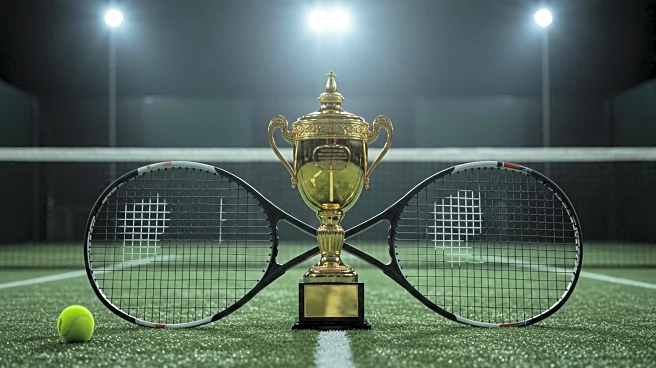What is the story about?
What's Happening?
Petra Kvitova, a two-time Wimbledon champion, has announced her retirement from professional tennis following the 2025 US Open. The decision comes as Kvitova, 35, experiences a shift in priorities after becoming a mother in July 2024. She expressed that she is mentally, emotionally, and physically ready to retire, wanting to spend more time with her son. Kvitova's career has been marked by significant achievements, including reaching a world ranking of No. 2 and overcoming a career-threatening attack in 2016. Despite her challenges, she made a remarkable comeback, although her recent performance has seen a decline, with her ranking dropping to 540.
Why It's Important?
Kvitova's retirement marks the end of an era for women's tennis, as she has been a prominent figure in the sport for over a decade. Her decision highlights the personal sacrifices athletes often make and the impact of life changes on their careers. Kvitova's departure may influence the dynamics of women's tennis, opening opportunities for emerging players to fill the void left by her absence. Her story of resilience and recovery from a violent attack serves as an inspiration, demonstrating the strength and determination required to overcome adversity.
What's Next?
The US Open, starting Sunday, will be Kvitova's final tournament, where she aims to conclude her career on a high note. Her retirement may prompt reflections on her legacy and contributions to tennis, potentially influencing future discussions on athlete welfare and career longevity. As Kvitova transitions to life beyond professional sports, she may engage in roles that support tennis or focus on personal endeavors, including family life.
Beyond the Headlines
Kvitova's retirement underscores broader themes of athlete mental health and the pressures of maintaining peak performance. Her candid acknowledgment of emotional and physical fatigue resonates with ongoing conversations about the well-being of athletes. This development may encourage sports organizations to prioritize support systems for athletes facing similar challenges.
















